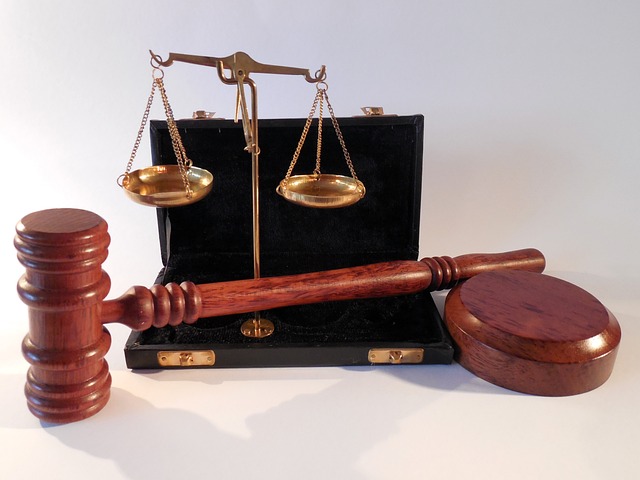
Demystifying Colorado’s Recording Consent Laws: Everything You Need to Know
In the sonorous sphere of sound and visual chronicles, endorsement functions as a pivotal component. Consent, at its core, refers to an individual’s freely given, enlightened, and unequivocal compliance to become part of the recording process. This approval is the bedrock of ethical and lawful documentation—be it in personal exchanges, professional environments or investigative reportage—it stands recognized as a globally accepted norm.
Taking a step into the labyrinthine world of legality, laws regulating consent for recording exhibit varied hues across different continents and even fluctuate within states in America. A case in point—Colorado maintains consent laws for recordings that decree it permissible to capture conversations if there exists assent from at least one participant involved. Known by many as “one-party consent”, this principle serves as the foundation for most American state’s consent laws. Nevertheless, grasping these regulations is essential to ensure you don’t unintentionally trespass on someone else’s privacy rights or violate any law.
- Understanding Consent for Recording: It’s essential to understand that consent is a fundamental requirement in recording conversations or visuals. This agreement should be freely given, informed and unequivocal.
- Freely Given: The individual must willingly agree to be part of the recording process without any coercion or pressure.
- Enlightened: They should fully comprehend what they are consenting to—the nature of the recording, its purpose, duration and how it will be used.
- Unequivocal Compliance: There shouldn’t exist any ambiguity about their approval; it must be clear-cut.
- Variations in Consent Laws Across Regions: Legal requirements concerning consent can differ significantly across different regions.
- Different Continents: In some countries, both parties need to give their consent before any recording takes place while others require only one party’s agreement.
- Within America: Even within states in America, there are variations. For instance, Colorado operates under “one-party consent” laws where recordings can take place if at least one participant agrees.
- Importance of Grasping These Regulations:
- Avoiding Privacy Rights Violation: Understanding these regulations helps prevent unintentional trespass on someone else’s privacy rights—a serious offence with potential legal repercussions.
- Staying Law-abiding : Being aware of these laws keeps you from inadvertently breaking them—an act which could lead to penalties or lawsuits.
In conclusion, understanding the essentials of consent for recording is not just an ethical obligation but also a legal necessity—ensuring respect for individuals’ privacy rights and adherence to law enforcement norms across various jurisdictions.
The Legal Framework Surrounding Recording Conversations
Globally, the laws encompassing conversation recording fluctuate vastly across diverse jurisdictions. In the context of the United States, it’s predominantly state legislation that determines whether or not oral dialogues – either telephonic or in-person – can legally be recorded. The deciding factors often pivot on whether a specific jurisdiction adheres to a one-party or two-party consent principle. This binary division pertains to how many individuals involved in the dialogue must sanction its recording – could be just one participant from within the discussion or all participants therein.
Amidst this labyrinthine network of legislative scrutiny, an oft-repeated question surfaces: “Is it permissible for me to employ a voice recording as evidence within Colorado’s Family Court?” To address this requires an excursion into Colorado’s distinct consent statutes’ minutiae. Mirroring numerous other states, Colorado adheres to a one-party consent policy; this implies you are lawfully allowed to record any discourse where you’re implicated as partaker even if explicit approval is absent from your co-participant(s). Such voice recordings may subsequently have legal admissibility in court settings inclusive of Family Courts thereby accentuating how vital comprehensive knowledge about legality related nuances concerning recoded conversations truly is while adeptly maneuvering through judicial processes.
Implications of One-Party and Two-Party Consent
In the realm of dialogue documentation, a successful navigation through the labyrinth of one-party and two-party consent laws is undeniably vital. The notion of one-party consent implies that it’s within legal bounds for an involved party to capture their interaction on tape without seeking approval or even notifying their conversational counterpart. This peculiar practice renders such recording legitimate, despite those captured in its net potentially being under the illusion of confidentiality.
Now, venturing into territories where two-party consent holds sway – let’s contemplate Colorado as an example – we encounter a more stringent protocol. In these jurisdictions, consensus from all engaged in conversation is mandated prior to any recording attempt; thus upholding the doctrine of ‘reasonable expectation of privacy’. So when faced with “What constitutes a reasonable expectation of privacy in Colorado?” It embodies each person’s lawful entitlement to partake in discourse free from apprehensions about unauthorised eavesdropping or recording. Consequently, this facet of agreement forms the bedrock while adjudicating legality surrounding recordings and underscores the intricate task balancing between individual privacy rights and accessibility to information.
Criminal and Civil Penalties for Non-Consent Recording
As we dive further into this complex labyrinth of consent and recording laws, we stumble upon a critical crossroad—the consequences bound to unlawful eavesdropping. Frequently, the query surfaces, “Does Colorado deem eavesdropping as illegal?” The response is straightforward—yes. In alignment with the stipulations in the Colorado Revised Statutes, both wiretapping and eavesdropping are classified as criminal activities. If adjudged culpable, individuals might confront significant penalties that range from incarceration to hefty fines.
Moreover, non-consensual recordings can catalyze not just criminal indictments but could also pave way for substantial civil liabilities. Victims subjected to unauthorized recordings may possess legitimate rights to file lawsuits against the perpetrator seeking damages. These civil proceedings frequently pivot around invasion of privacy rights which could potentially result in sizeable compensations. Consequently, it is vital to acknowledge—be it in Colorado or any other state—that legal provisions mandate reverence for individual privacy along with appropriate consent for any form of recording.
Significance of Consent in Phone and In-Person Conversations

The necessity of securing permission prior to the commencement of recording phone and face-to-face dialogues is not merely a question of ethics, but also one that bears legal importance. The act of unauthorized documentation could potentially encroach upon an individual’s privacy rights, and it is widely agreed among most jurisdictions that such invasions are legally reprehensible. Hence, consent emerges as an indispensable prerequisite in these interactions to maintain respect for personal space and adherence to the law.
In telephonic exchanges, the call for consent escalates due to the absence of visual indicators associated with recording apparatuses. Without physical cues pointing towards surveillance equipment, participants have no choice but to bank solely on their faith in the other party’s respect for their privacy. Face-to-face conversations offer some solace through visual identification possibilities of recording machinery; this however does not diminish the weightage given to obtaining approval. In both scenarios, adequate consent sets a clear path towards transparency, mutual regard and legality – all key building blocks allowing dialogue progression.
The role of Consent in Professional Settings
In the labyrinthine intricacies of professional landscapes, consent emerges as an indispensable cornerstone, particularly when it pertains to capturing dialogues or assemblies. Such terrains regularly embrace a sweeping range of exchanges, be they telephonic congregations or negotiation parleys to in-person consultations or interrogations- all potentially subject to documentation for an assortment of legitimate objectives. These span from preserving precise records and corroborating discussion specifics to training enhancement and performance appraisals.
Yet, within this intricate web, the golden key lies in securing informed consent before embarking on such recording journeys – a quintessential step towards guaranteeing legal and ethical adherence. The act of acquiring consent isn’t merely fulfilling a lawful mandate; it sows seeds of trust and transparency into professional engagements’ fertile soil. It serves as a shield against potential discordance, legal contentions or erosion of business alliances.
Neglecting to procure apt permission can trigger considerable legal backlash along with prospective tarnishing of professional standings. Henceforth arises the prudence in willingly formulating lucid policies around conversation recordings encompassing timing and modality for obtaining approval- epitomizing respect for privacy rights whilst promoting ethical conduct which bolsters credibility within professional confines.
Privacy Rights and Recording: A Delicate Balance
In a world that teeters precariously on the edge of personal privacy and practical necessity, privacy rights and the act of recording conversations twirl endlessly in an intricate dance. This delicate equilibrium is sculpted by dual forces: the need to shield individual personal rights, granting control over one’s private details, juxtaposed with society’s demand for information documentation for pragmatic purposes.
The backdrop against which this dynamic interaction unfolds is our swiftly evolving digital epoch where voice recording technology permeates every corner. The question then arises – how do we maintain this balance?
The answer lies subtly embedded within principles of consent – understanding them, respecting them. Arming oneself with knowledge about rights and responsibilities when engaging in conversation recording can cultivate an environment characterized by fairness, respect, and integrity.
Recording tools undoubtedly bring manifold benefits to fields such as education or journalism or even law enforcement activities. However, these are double-edged swords whose misuse could threaten privacy rights; they serve as both shields and weapons depending on their wielder.
Thus emerges the importance of awareness and adherence to consent laws as potential safeguards against invasions of privacy – key elements in maintaining this fine line effectively.
FAQ
The term ‘consent’ within the realm of recording, denotes an individual’s agreement or authorization to be recorded. This assent can take shape explicitly—via verbal affirmation—or implicitly—say by being present in a public domain where privacy considerations are minimal.
The legal contours surrounding conversation recordings are subject to jurisdictional variation. Broadly speaking, most legislations pivot either on one-party consent or two-party consent. In one-party consent laws, just a single participant in the dialogue needs to accede for recording. Conversely, with two-party consent laws, all participants must concur with being recorded.
One-party consent regulations make it relatively simpler to record dialogues as only one person’s approval is mandated. However, two-party consent statutes safeguard privacy rights of each participant involved in a dialogue. These rules can impact whether a certain recording can be legally obtained and admitted—for instance—in court proceedings.
Non-consensual recordings might lead down both criminal and civil penalty routes. On the criminal front penalties may range from fines to imprisonment terms while civil repercussions might involve monetary compensation awarded to aggrieved parties whose privacy was violated.
Procuring proper consents proves absolutely essential during telephone discussions as well as personal interactions—it helps maintain respect towards privacy rights along with ensuring legal compliance. Lack thereof could potentially result into discarding any recorded chat as evidence within legal trials or invite other lawful liabilities.
A significant role is played by Consent within professional environments—it becomes crucial to ensure all parties partaking in a dialogue, meeting or interview are cognizant of any recording and give their nod for the same. This safeguards both personal privacy rights as well as corporate interests.
There is an intricate correlation between privacy rights and conversation records—though recording can be a handy tool across numerous situations, it becomes critical to strike balance with preservation of individual’s right to privacy. And that is precisely why consent often emerges as a requisite—to respect and maintain these very privacy rigths.

